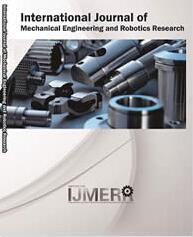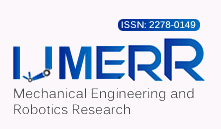ABOUT ICRIT 2025
2025 7th International Conference on Robotics and Intelligent Technology (ICRIT 2025) aims to provide a leading international forum for researchers, practitioners, and professionals from the industry, academia and government to share their new ideas, progresses and achievements in robotics and intelligent technology and related fields. ICRIT 2025 will be held in Macau, China during March 21-23, 2025.
The conference calls for high-quality, original research papers in the theory and practice of robotics and intelligent technology. The conference also solicits proposals focusing on frontier research, new ideas and paradigms in robotics and intelligent technology.
2025 7th International Conference on Robotics and Intelligent Technology (ICRIT 2025) is postponed to March 21-23, 2025.
 Online Participation Notice
Online Participation Notice
The health and safety of our participants is our top priority. Online participation is still an option.
 PUBLICATION
PUBLICATION
 Submissions
will be peer reviewed by both conference
committees and IJMERR Editorial Board, and
accepted paper will be published in
International Journal of Mechanical Engineering and Robotics Research,
which will be indexed in ESCI, Scopus, CNKI, Google Scholar, Crossref, etc..
Submissions
will be peer reviewed by both conference
committees and IJMERR Editorial Board, and
accepted paper will be published in
International Journal of Mechanical Engineering and Robotics Research,
which will be indexed in ESCI, Scopus, CNKI, Google Scholar, Crossref, etc..
 IMPORTANT DATES
IMPORTANT DATES
Full Paper Submission Deadline:
February 10, 2025 (Final Call!!)
Acceptance Notification Date: February 25, 2025
Registration Deadline: March 5, 2025
Camera-Ready Paper Submission: March 5, 2025
Conference Dates: March 21-23, 2025
CONFERENCE SCOPE
The conference provides an international forum for researchers to report their latest innovations, summarize state-of-the-art in the field, as well as exchange ideas, results, and visions in all fields of robotics and intelligent technology research and applications. The main topics of interest include, but are not limited to:
Robot Design, Development and Control
Control and Supervision Systems
Telerobotics and Teleoperation
Vehicle Control Applications
Industrial Networks and Automation
Human-Robots Interfaces
Network Robotics
Autonomous Agents
Intelligent Transportation Technologies and Systems
Space and Underwater Robots
Modelling, Simulation and Architecture
Human-Machine Interfaces
Collective and Social Robots
Humanoid Robots
Cognitive Approach for Robotics
Mobile Robots and Intelligent Autonomous Systems
Mechatronics Systems
Virtual Environment, Virtual and Augmented Reality
Perception and Awareness
Surveillance, Fault detection and Diagnosis
Engineering Applications
Genetic Algorithms
Fuzzy Control
Decision Support Systems
Machine Learning in Control Applications
Knowledge-based Systems Applications
Hybrid Learning Systems
Distributed Control Systems
Evolutionary Computation and Control
Optimization Algorithms
Soft Computing
Software Agents for Intelligent Control Systems
Neural Networks based Control Systems
Planning and Scheduling
Intelligent Fault Detection and Diagnosis
Engineering Application






